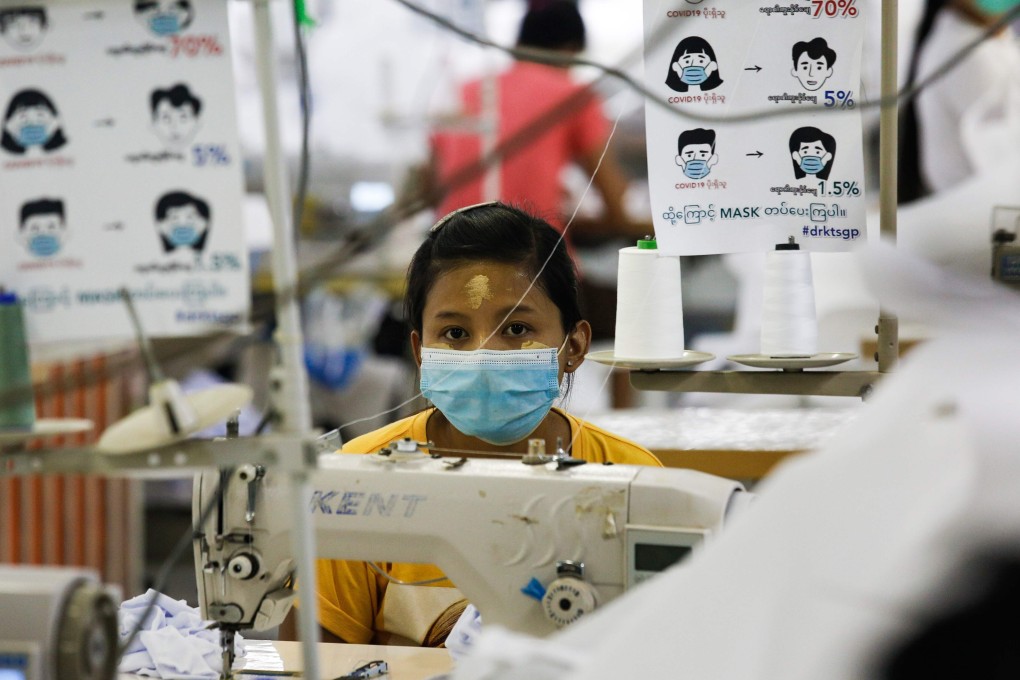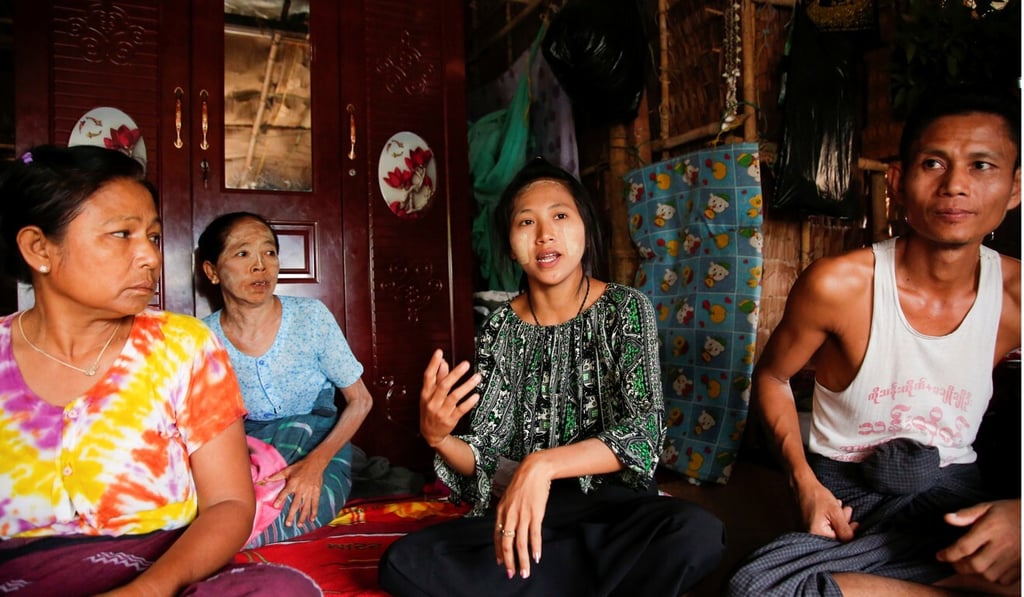Advertisement
Coronavirus cuts a swathe through Asia’s garment industry, leaving thousands out of work
- Lockdowns, cancelled orders and closed factories have seen hundreds of thousands of workers laid off across Bangladesh, Cambodia and Myanmar
- Many of the factories that have reopened are struggling to enforce social distancing and good hygiene practices in often cramped conditions
Reading Time:5 minutes
Why you can trust SCMP

Zar Chi Lwin pawned her only two gold bangles for US$140 when the owner of the factory in Myanmar where she stitched winter coats for British retailer Next shut it down after orders dried up in the wake of the coronavirus pandemic.
Advertisement
She is one of hundreds of thousands of garment workers across Asia who have been laid off, according to labour rights campaign group the Workers Rights Consortium, and are now struggling to survive with little welfare support, mired in debt and in many cases reliant on food handouts.
“If I have a job and an income, I can pay for medical treatment for my mother,” 29-year-old Zarchi Lwin said from the home she shares with her 56-year-old mother, who has lung disease, in a shanty town on the outskirts of Yangon. “Now no income, no job,” she said, fighting back tears. “We don’t know what to do.”
Next temporarily closed all its stores in Britain in March because of the coronavirus. The company said in a statement it had only cancelled some orders and “endeavoured to be fair” to its suppliers. KGG, the factory where Zar Chi Lwin worked, did not respond to requests for comment.

Advertisement
Since the 1960s, Asia has grown into the world’s garment factory, sending about US$670 billion worth of clothes, shoes and bags a year to Europe, the United States and richer Asian countries, according to the International Labour Organisation, a United Nations agency.

Advertisement